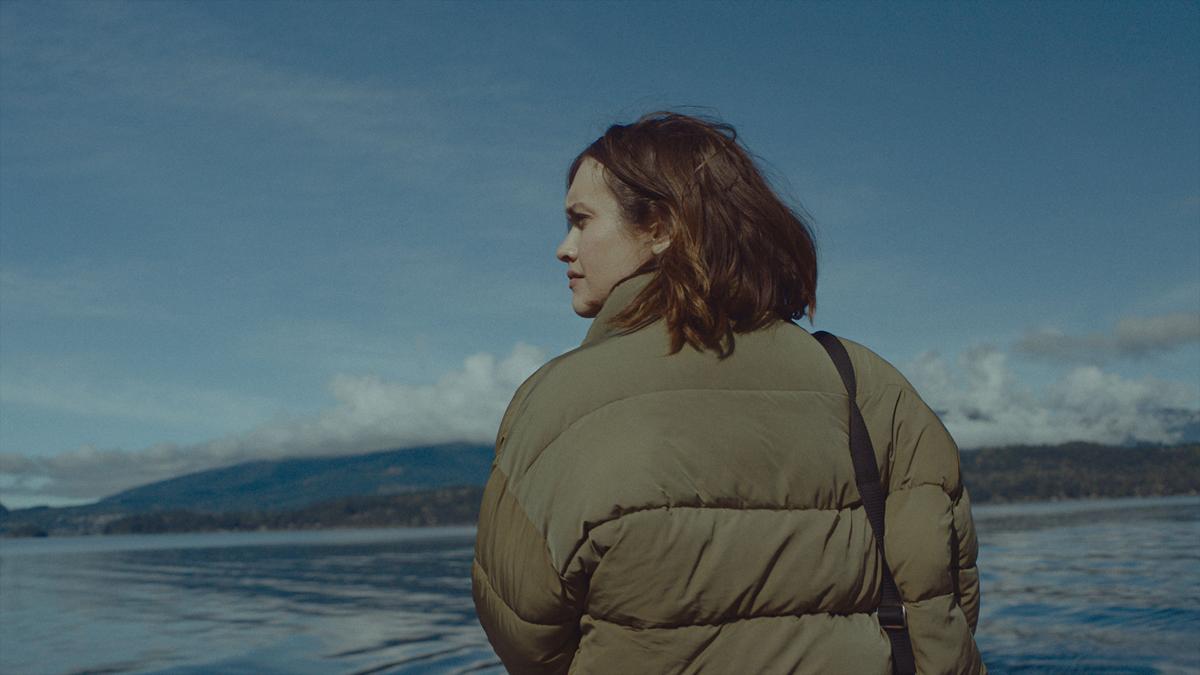
Every year, people flock to see the latest and greatest sci-fi epics. Over the course of just five years, we’ve gotten Arrival, Annihilation, Tenet, and Dune. These large-scale releases typically feature gargantuan budgets and A-list casts. It’s not hard to figure out why they garner so much attention. The hype is, generally speaking, well-deserved.
However, moviegoers only have so much time. This ultimately means that more small-scale science fiction releases have a tendency to slip through the cracks. There simply isn’t as much mainstream appeal, and even if there was, the marketing can’t measure up. This leaves us with a metaphorical pile of underrated sci-fi releases that must fend for themselves on streaming services.
That’s why Taste of Cinema attempts to give them some sort of spotlight. In terms of popularity, these gems will never be able to stand toe-to-toe with something like Arrival. However, they deserve to find a more sizable audience regardless.
1. Little Fish

Chad Hartigan’s bleak sci-fi drama presents viewers with a terrifying reality. What if there was a widespread virus that resulted in memory loss? It could affect anyone at any time, and it could be instantaneous or slow-building. There is no cure because so little is known about the virus. In other words, once you’re hit with it, it’s there to stay.
In a lot of ways, the premise brings to mind a pandemic that we have been facing for over a year now. While this memory-erasing virus is arguably more life-threatening, it still feels like a timely parallel. As relevant as Little Fish happens to be, it actually began as a 2011 short story, so similarities to the COVID-19 virus are purely coincidental.
That doesn’t make its impact any less valuable. Little Fish came out at the right time. Its release window benefits it because it’s able to offer up a commentary that feels downright necessary in a post-coronavirus world. It’s as profound as it is heartbreaking, and it’s liable to stick with you for months.
Even if we ignore the timeliness of it all, it’s still an all-around excellent movie. Little Fish effortlessly pulls at your heartstrings. The two leads give career-defining performances, and the screenplay only enhances things. It’s not exactly fun to watch, but it’s positively captivating.
2. Come True

Sarah Dunn is unhappy. She has a bad relationship with her mother, she struggles to support herself, and she experiences the same nightmare repeatedly. In an effort to make some money, she decides to participate in a sleep study. In theory, this could shed light on her poor sleeping habits while simultaneously keeping her head above water.
Unfortunately, the sleep study does not lead to positive results. On the contrary, the nightmares worsen and the purpose of the study remains a mystery. This eventually leads viewers to an unsettling narrative filled with unexpected twists and turns.
Though marketed as a sci-fi horror movie, Come True isn’t exactly scary. Instead, it’s quietly unnerving. Thankfully, that pairs well with the story’s pacing. This isn’t another Blumhouse jump scare festival. Instead, it’s an unconventional analysis of the human psyche.
In that regard, Come True is successful. Like most indie releases, it can feel off-putting. The pacing is slow, the dialogue is minimalistic, and the visual effects are average, but there’s a gripping story here. It just needs an audience to discover it.
3. Lapsis

In a parallel present, a massive quantum computing company is one step away from taking over the world. Think of them as an even larger, potentially deadlier, version of Amazon. They’re greedy, exploitative, and corrupt because they know nobody will stop them. They have a firm grip on the world’s population, so they can essentially do whatever they want.
This ultimately means that struggling people will throw their morals aside in order to work for them. This leads us to our protagonist. After several unsuccessful attempts to earn money, Ray Micelli decides to bite the bullet and work as a CABLR. This basically means that he must lay cable needed for quantum computing, but it’s less straightforward than you might assume.
Ray eventually learns that this particular job is incredibly competitive, and that leads us to the big, loud social commentary. Lapsis has a lot to say about capitalism and global monopolies. It’s not particularly subtle, but it nevertheless achieves its goal of being an engrossing satire.
Most of the appeal comes from its relevance. Lapsis satirizes something that has become a very real problem. Recently, there has been a lot of talk about global monopolization, poor work conditions, and economic struggles. Lapsis puts this into a neat sci-fi package, giving us a pill that’s somewhat easier to swallow compared to the gloomy realities of the world.
4. Archive

At first glance, Archive presents itself as a relatively straightforward sci-fi drama about artificial intelligence. The film revolves around a scientist, played by Theo James, who wishes to create AI that flawlessly replicates human behavior. In spite of what viewers may initially believe, his true motivations go beyond scientific discovery. As the film unravels, it gradually becomes easier to put the pieces together.
Of course, you’ll need patience to solve the central mystery. During the first half, Archive slowly throws out breadcrumbs instead of giant clues. The mystery takes a backseat to character development and wordbuilding, and although it can feel dull during your first viewing, this setup is essential to the events that take place later on in the story.
It’s hard to talk about Archive without spoiling it, so we’ll leave this mostly spoiler-free. Rather than delving too deeply into the plot, it’s probably appropriate to talk about what the movie does well. Luckily, that’s a surprisingly lengthy list.
Archive is a visual treat with just enough human emotion behind it. There’s a poignant story buried beneath the sci-fi jargon and special effects. Luckily, these elements all coexist in relative harmony. Every component works in harmony, and this gives us something that absolutely transcends any expectations.
5. Minor Premise

Daddy issues are front and center in Minor Premise, a heady sci-fi movie about a neuroscientist who attempts to overshadow his father with a risky new experiment. The fractured relationship between father and son accounts for one half of the conflict, while the experiment brings its own set of problems. This combination results in a thrilling psychological drama that soars in unexpected ways.
Ethan, the protagonist, essentially finds a way to section off fragments of his consciousness. This basically means that ten distinct personalities fight for supremacy within Ethan’s own head. While it’s certainly an impressive scientific breakthrough, it leads to far more problems than one might expect, especially when one specific fragment begins to cause problems.
Don’t worry; this isn’t some cheap, exploitative Split knockoff. Minor Premise easily lives up to its potential thanks to its creativity and surprisingly in-depth logic. There’s a lot of intelligence on display here, but the film miraculously avoids being inaccessible. By offering excitement alongside its more thought-provoking elements, the film stands out as a multifaceted treat that serves multiple purposes.